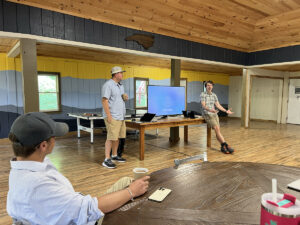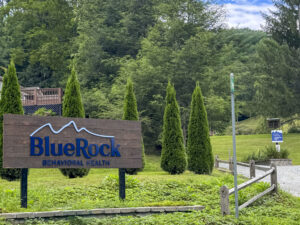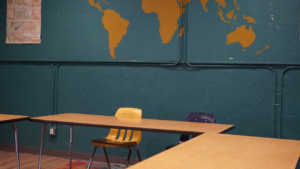The journey through residential treatment is a transformative experience for both teens and their families. While the structured environment at BlueRock provides the stability needed for healing and growth, the ultimate goal is always successful reintegration back into family life and the wider community. This transition period represents both an exciting milestone and a vulnerable time for recovery.
The Delicate Balance of Transition
Returning home after residential treatment marks a significant achievement in a teen’s recovery journey. It signals progress, growth, and readiness for the next chapter. However, this period also comes with unique challenges. The structured environment that supported recovery gives way to more freedom, old triggers may resurface, and new skills must be applied in real-world settings without the same level of immediate support.
During this critical phase, treatment gains can either be solidified into lasting change or begin to erode under pressure. Research consistently shows that a thoughtful, gradual transition process significantly increases the chances of maintaining progress after residential treatment.
Building a Bridge, Not a Cliff
At BlueRock, transition planning begins long before a teen’s discharge date. Rather than viewing the end of residential treatment as a cliff edge, we see it as a bridge that must be carefully constructed. Our transition approach includes several key components:
Graduated Independence: As teens progress through treatment, they gradually receive more responsibility and independence. This step-by-step approach allows them to practice new skills with appropriate support before facing full autonomy at home.
Real-World Application: Throughout treatment, we provide opportunities for teens to apply their coping strategies, communication skills, and emotional regulation techniques in increasingly challenging situations. From managing academic stress to navigating peer relationships, these practical experiences build confidence for the challenges ahead.
Aftercare Coordination: Our team works closely with families and community providers to establish a robust support network before discharge. This may include outpatient therapy, academic support, community activities, and other resources tailored to each teen’s specific needs.
Continued Therapeutic Support: The relationship with BlueRock doesn’t end at discharge. Our transition process includes ongoing check-ins and support as teens navigate their return to home, school, and community life.

Foundation for Success
The transition process builds upon the work completed throughout a teen’s time at BlueRock. Our focus on life skills development and community integration during treatment creates a strong foundation for successful reintegration. Teens learn practical skills such as time management, healthy communication, problem-solving, and emotional regulation—all essential tools for navigating life after residential care.
Our mountain setting provides a unique opportunity for teens to develop resilience, adaptability, and confidence through outdoor experiences and community living. These qualities prove invaluable during the transition process, as teens face new challenges with a strengthened sense of self and capability.
Preparing the Home Environment
While teens are doing important work in residential treatment, parents play a crucial role in preparing for a successful transition. We partner with families throughout treatment to develop strategies for the home environment, including:
Setting Appropriate Boundaries: Establishing clear expectations and consistent boundaries that support recovery while acknowledging increased maturity and autonomy.
Creating a Supportive Atmosphere: Developing a home environment that balances accountability with understanding, recognizing that recovery is an ongoing journey with inevitable ups and downs.
Supporting Continued Growth: Finding ways to reinforce therapeutic concepts and skills in everyday family life without becoming a “home therapist.”
Navigating School Reentry: Working with educational institutions to ensure appropriate support and accommodations during the return to academic life.
Common Transition Challenges
Even with thorough preparation, most families encounter some challenges during the transition period. Understanding these common hurdles can help parents navigate them more effectively:
Reemergence of Old Patterns: Family systems naturally resist change, and it’s common for old communication patterns or dynamics to resurface under stress. Awareness of these patterns is the first step in establishing new, healthier interactions.
Peer Relationships: Navigating old friendships and establishing new, supportive social connections is a significant challenge for many teens. Parents can help by encouraging healthy activities and remaining vigilant without becoming overprotective.
Managing Freedom Responsibly: After the structure of residential treatment, teens must learn to manage increased freedom appropriately. This usually involves some trial and error as they develop internal regulation and decision-making skills.
Identity Integration: Teens often develop significant insights and make substantial changes during treatment. Integrating this “treatment self” with their broader identity and explaining these changes to friends and extended family can be challenging.
The BlueRock Advantage
Our relationship-based treatment model creates a unique advantage during the transition process. Through authentic connections with staff and peers, teens at BlueRock develop the relational skills and emotional resilience needed for successful reintegration. Our serene mountain setting provides not only a healing environment during treatment but also important life lessons about adaptation, perseverance, and natural consequences that serve teens well as they transition home.
The meaningful relationships established during treatment—with both staff and peers—provide a foundation of support that extends beyond discharge. Teens leave with not only new skills but also a strengthened sense of self-worth and capability that helps them navigate the complexities of returning home.
Successful transitions don’t happen by chance—they require intentional planning, ongoing support, and collaboration between teens, families, and treatment providers. At BlueRock Behavioral Health, we’re committed to providing comprehensive transition support that helps teens maintain and build upon their progress as they return to family life.
If you’re seeking residential treatment for your teen that prioritizes successful transition back to home life, we invite you to learn more about BlueRock Behavioral Health. Located at 41 Heros Wy, Hendersonville, NC 28792, our 140-acre campus in the Blue Ridge Mountains provides a healing environment where teens can develop the skills needed for lasting recovery. Contact us at 828-845-8454 to discuss how we can help your family navigate this important journey.





















